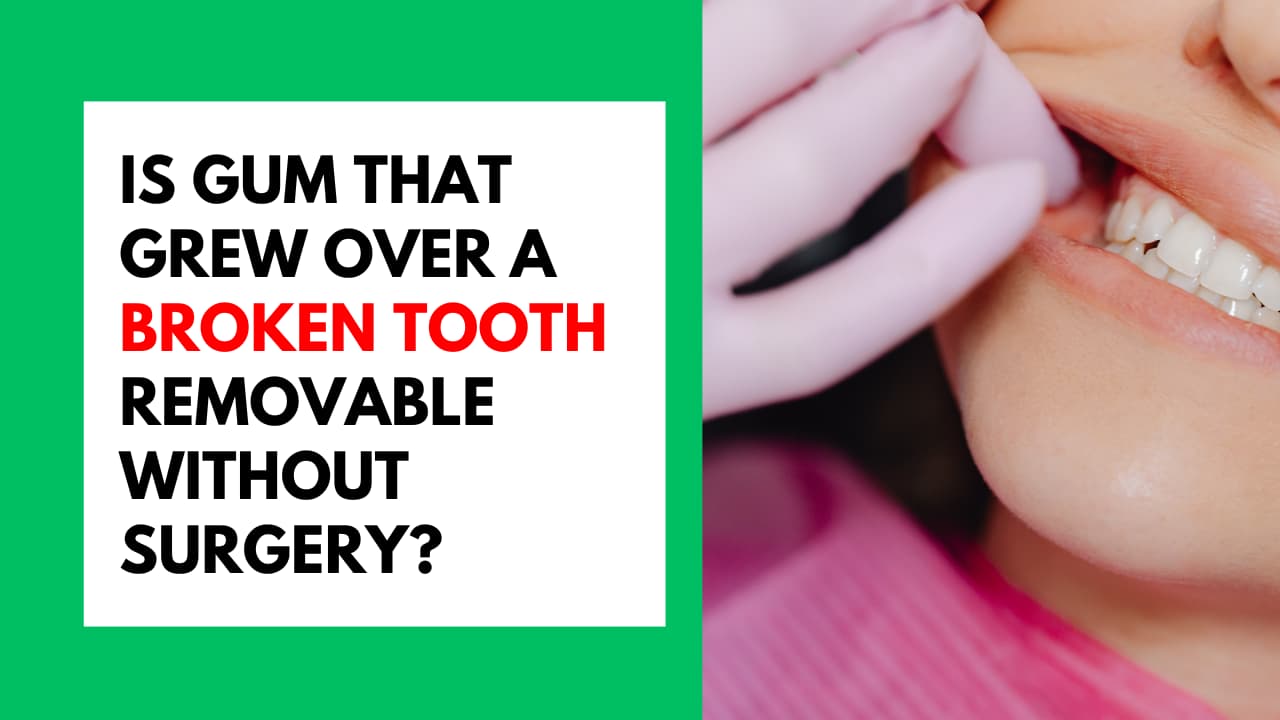When we think of healthy teeth, the first image that comes to mind is a beaming smile with rows of pearly white teeth and vibrant pink gums. However, this picture-perfect smile isn’t a reality for many people. Teeth can be chipped, discolored, or develop various spots and marks.
One of these dental anomalies that confused many is unexplained black lines on teeth. How do you explain these black streaks when there’s no sign of cavity? Here’s where we can help. In this blog, let’s learn why black lines form on teeth without cavities, and we will discuss how they can be treated. So continue scrolling to expand your knowledge!
Expert in This Article
Dr. Omad Chaudhary, leader of Enhance Dental at Heritage in Wake Forest, NC.
If Not Cavities, What Are Black Lines On Teeth?
To understand why black lines occur on teeth, we must understand plaque formation. Healthline describes plaque as a substance that develops when saliva mixes with bacteria and left-over food particles in your mouth. When plaque hardens, it forms tartar.
Tartar or dental calculus is difficult to remove with regular brushing, so it stays stuck to the tooth’s surface. Enhance Dental’s leading expert dentist, Dr.Omad Chaudhary FICOI, explains, “Tartar usually starts off-white or yellow and becomes darker as it absorbs minerals like iron, copper, or calcium.”
Consuming dark-colored beverages and foods can also cause tartar to darken from their strong pigment, similar to how they tint your teeth. So, the lines you might observe on your teeth might be because of darkened tartar.
Moreover, people with dental crowns are likelier to have black lines on their teeth. This is because old porcelain crowns show their underlying metal structure as gums recede with age. However, gum disease can also expose the metallic base of the crown.
Usually, any type of dental discoloration is associated with cavities as a tell-tale sign. However, cavities have additional symptoms, such as pain, swelling, and inflammation. Without these symptoms, cavities may not be at play.
What Are The Causes of Black Tartar?
Tartar can darken over time because of several factors. It begins with poor oral hygiene, which can lead to plaque hardening into tartar in the first place. Moreover, frequent use of tobacco products and consuming dark-pigmented substances like wine, black tea, and coffee can blacken tartar.
In some cases, tartar is darkened because of calcium. Calcium is more likely to absorb strong pigments due to its chemical composition, so it’s more likely to discolor. However, studies show that high calcium content in saliva is linked to lower active cavities.
Additionally, black tartar below the gumline could be a symptom of gum disease. It’s because periodontal issues cause gums to bleed. This blood can stain tartar and give it a darker color.
Can Black Lines On Teeth Lead To Cavities?
Although cavities do not cause black tartar, it can lead to them. The Mayo Clinic warns that you might be accumulating dental plaque if you feel a fuzzy feeling on your teeth, bad breath, or swollen gums that bleed while brushing.
Tartar buildup does contribute to the formation of cavities and gum disease. Poor oral hygiene practices cause tartar buildup, as brushing and flossing prevent plaque from hardening.
In some cases, enamel damage can also be blamed for irregular black lines on your teeth.
Weakened enamel can cause plaque to form more easily on rough surfaces. These can impair your teeth’s pearly look as tartar gets darker over time. Hence, it can all be linked to neglected dental hygiene, eventually leading to oral health issues.
You May Also Like: Does The Flu Make Your Teeth Hurt?
How To Remove Black Lines On Teeth?
We understand that black lines on your teeth can be distressing; however, they are fairly easy to treat. You can use several strategies to remove them.
1. Calculus Removal Toothpaste
One great way to remove blackened tartar is to use calculus removal toothpaste. Regular toothpaste might not be enough to remove plaque after it has hardened.
Dr. Chaudhary notes, “Calculus removal toothpaste has abrasive agents such as baking soda or aragonite derived from cuttlefish bone. It can remove calculus without harming enamel.”
2. Regular Flossing
If you brush daily but still notice tartar formation, you should also incorporate flossing into your oral hygiene routine. A toothbrush can’t reach every nook and cranny of your mouth properly, and flossing can help reach the hard-to-get areas surrounding your teeth.
3. Antibacterial Mouthwash
An antiseptic mouthwash kills the bacteria living in your mouth. It can also be used as part of your routine to control plaque formation and prevent black tartar.
4. Dental Scaling and Planing
The best way to remove dental calculus is with a professional dental scaling treatment. This routine procedure can do wonders for removing stubborn tartar. It requires just one sitting and is usually finished with dental polishing.
Many people are surprised by their teeth’ improved aesthetics after dental scaling and planing. This painless treatment can remove years of accumulated tartar.
5. Crown Replacement or Gum Graft
If porcelain crowns cause black lines, they can cause black lines at the gum line and make them look very apparent. These crowns can be replaced by more natural ceramic or zirconia crowns that won’t show if gums recede.
Alternatively, if you don’t want to replace your crown, a gum graft procedure can hide the black lines of porcelain crowns and cover and restore the receded area.
6. Teeth Whitening or Porcelain Veneers
Sometimes, teeth whitening might be recommended if discoloration affects your whole tooth. This is usually used in situations where your whole tooth has turned black or grey because of pigmented substances.
Porcelain veneers can cover the discolored tooth and provide a natural replacement for cases where dental whitening may not be affected, such as systematic disorders.
End Note
Strange discolorations or patterns on teeth can impact life more than we think. They can cause poor self-esteem and even social isolation, as you may feel self-conscious whenever you smile or laugh. It’s essential to understand their cause so you can get effective treatment.
Black lines on teeth may indicate developing cavities or gum disease. Dental calculus can prevent your regular oral hygiene from effectively cleaning your mouth. Your best bet is to take care of your dental health by brushing twice daily, flossing, and using antibacterial mouthwash.
These measures can help prevent more plaque from forming. Additionally, seeking professional dental treatment is key to preventing plaque buildup and removing stubborn tartar for a seamless smile.

Annie Edith is an experienced journalist and content creator with a strong passion for health and wellness. She takes a unique approach to her writing, exploring the latest trends in Dental, Fitness, and mental well-being, while providing readers with informative, research-based articles.





